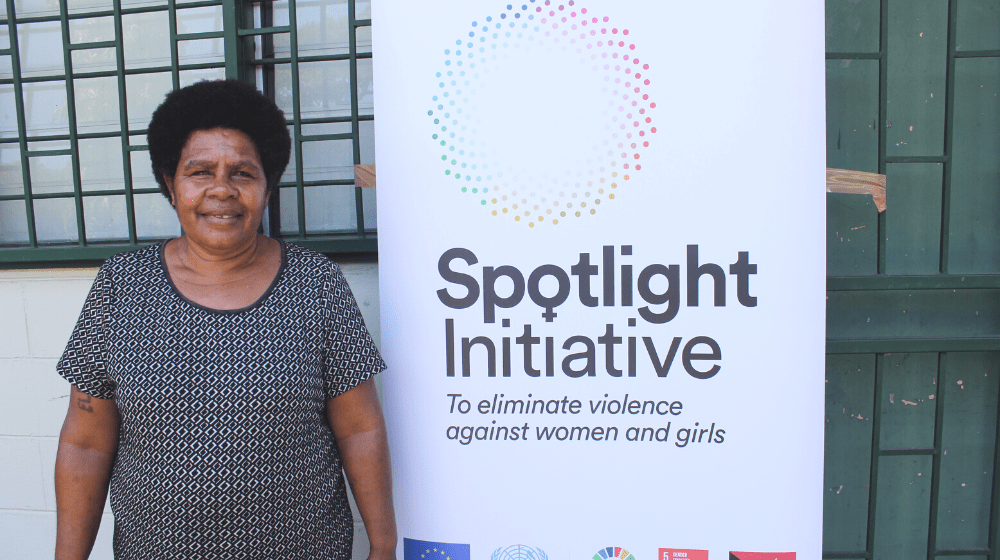There are young people in Papua New Guinea who graduate high school with limited understanding of their own bodies. Girls, reaching puberty, who have their first period with no understanding of what is happening to them, and that is completely natural. Boys who do not know that having unprotected sex puts them at risk of STIs, including HIV.
Elizabeth Moli works for the Curriculum Development Division of the National Department of Education. Her work is focused on health, physical education, and character development. It is in this area of education that teachers have a responsibility to teach their students about human development and reproductive health.
Ms Moli was joined by staff from the National Department of Education and representatives from civil society organizations in a series of learning sessions led by Family Planning NSW aiming to improve the consistency and quality of CSE content and delivery in out of school and in- school environment.
Comprehensive Sexuality Education - sometimes called Family Life Education, or Character and Social Development - includes scientifically accurate and age-appropriate information about human development, anatomy and reproductive health, as well as information about contraception, childbirth and sexually transmitted infections (STIs), including HIV.
The estimated number of new HIV infections in PNG has increased from 2,500 in 2010 to 3,300 in 2019 (about 33%). By the end of 2019, PNG had an estimated 51,000 people living with HIV and the HIV prevalence among 15-49 years old reached 0.85%. In comparison, the prevalence rate in Australia is 0.1%. Information on STI and HIV transmission equips young people with the knowledge they need to make decisions about their health and wellbeing.
This content is not new to the Papua New Guinea education curriculum, but this training package is being developed to address the challenges to rolling out the information in classrooms as well the formulation of a facilitation guide to deliver CSE in out of school environments.
“One of the challenges is that, even though this content is programmed, our teachers do not have confidence in teaching it,” said Ms Moli. “In implementing this curriculum, we need to sensitize our teachers.”
When teachers do not consistently follow the national curriculum, students become disadvantaged. Those students whose teachers are capable of teaching the content are being given the correct information, and the best opportunity to make good decisions, while others are being left behind.
Building teachers capacity includes ensuring they know the content and giving them the confidence to be able to answer questions from students.
“If our teachers understand this content, then they are confident in teaching it, and they can teach it effectively,” said Ms Moli.
The CSE curriculum also goes beyond information, helping young people to explore and nurture positive values regarding their sexual and reproductive health and rights. This education includes discussions about family life, relationships, culture and gender roles, and also addresses human rights, gender equality, bodily autonomy and threats such as discrimination, sexual abuse and violence.
“This curriculum is very important because we want to see changes in the behaviour of our young people,” said Ms Moli. “Alongside this curriculum, we need learning resources that motivate our students, that keep them engaged in the topic.”
UNFPA, in partnership with the National Department of Education and Family Planning NSW, and with support from the Spotlight Initiative, is continuing consultations on the curriculum to ensure that it is fit-for-purpose for Papua New Guinean classrooms.
If you or someone you know is struggling and in need of support, the 1-Tok Helpim Lain is open 24 hours a day, 7 days a week. Call for free from Digicel on 7150 8000.
About the Spotlight Initiative
The Spotlight Initiative is a global initiative of the United Nations which has received generous support from the European Union. Its aim is to eliminate all forms of violence against women and girls.
In Papua New Guinea, Spotlight is implemented by UNFPA, UN Women, UNDP and UNICEF across 11 provinces. The programme works to address gaps between legislation, sub-national institutions and service delivery, in addition to addressing the causes of violence in promoting behaviour change and respectful relationships. Spotlight was launched in 2020 and will conclude in December 2023.


